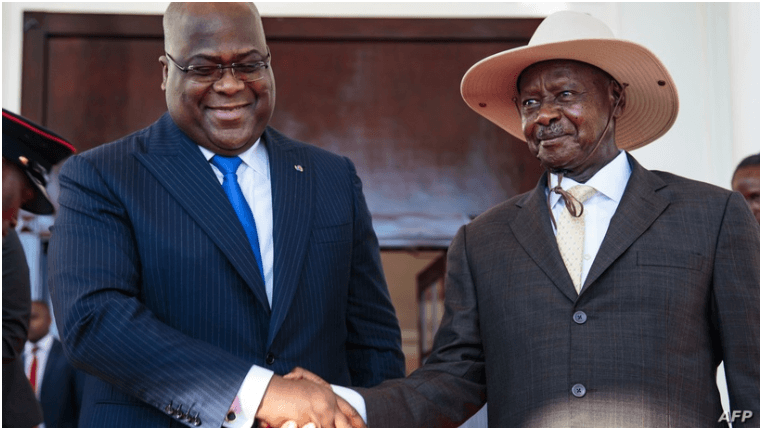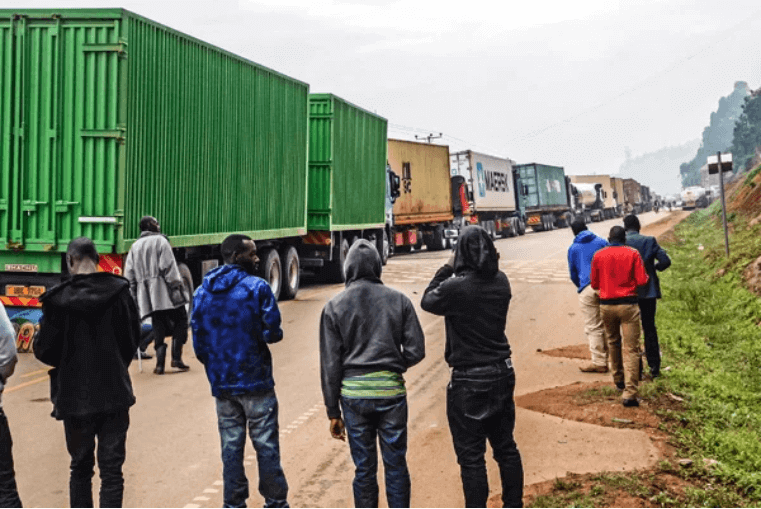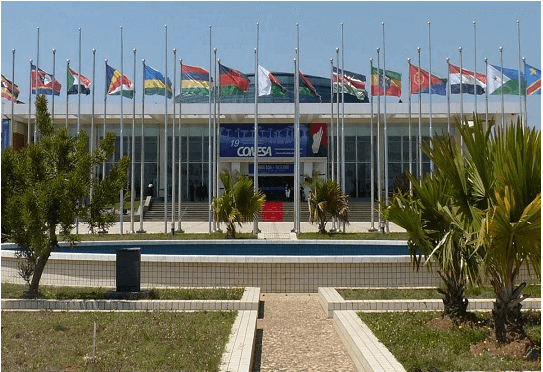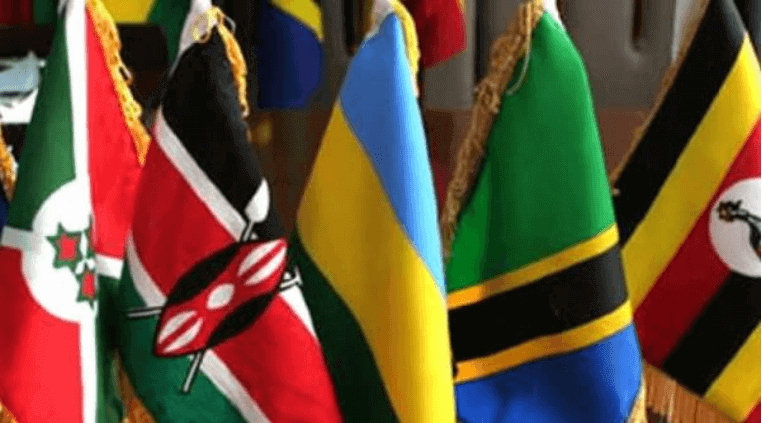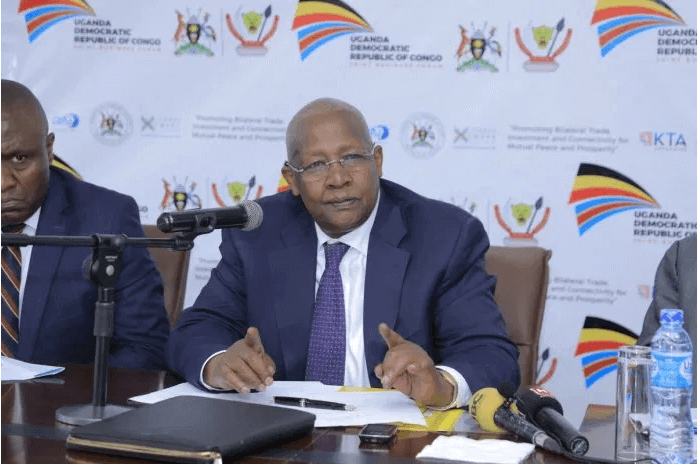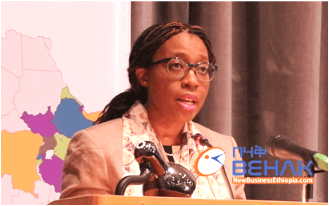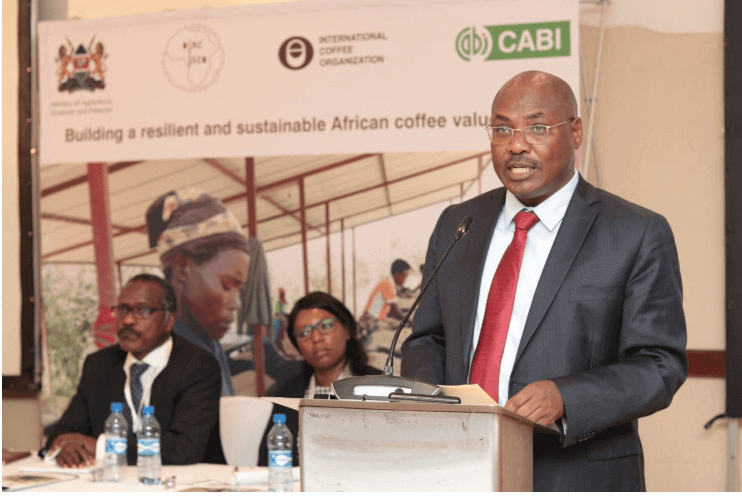ENTEBBE, UGANDA - Uganda and the Democratic Republic of Congo sign agreements to work on key road networks within 24 months, connecting the two countries to ease business. However, security concerns on the routes remain key for business. Uganda and the Democratic Republic of Congo have signed an agreement to increase trade and investment between the two Great Lakes Region countries. Presidents Yoweri Museveni of Uganda and President Felix Tshisekedi of the DRC noted that there are numerous trade restricting measures and infrastructure obstacles that raise the cost of doing business in the region. Museveni noted that both Uganda and the DRC now import many products from China, Japan and India, instead of manufacturing them at home. The total distance of the three key road networks will be 1,182 kilometers within 24 months after the respective ministers have agreed on implementation details. “One road we want to work on is from Goli to Mahagi-Bunia. Then the other road would be from Mpondwe to Beni. The other road would be from Bunagana to Rutshuru to Goma. So, when you produce, you supply goods, you supply services. But you also create jobs for the youth,” said Museveni. There have been expressions of fear among business about the militias operating in the eastern D.R.C. that may destabilize trade between the two countries. However, Tshisekedi reassured them that the two countries will ensure there is peace to promote business and development. “We intend to develop or build infrastructure so we can carry out economic...
Uganda and DRC to Improve Infrastructure to Ease Business
Posted on: November 11, 2019
Posted on: November 11, 2019

